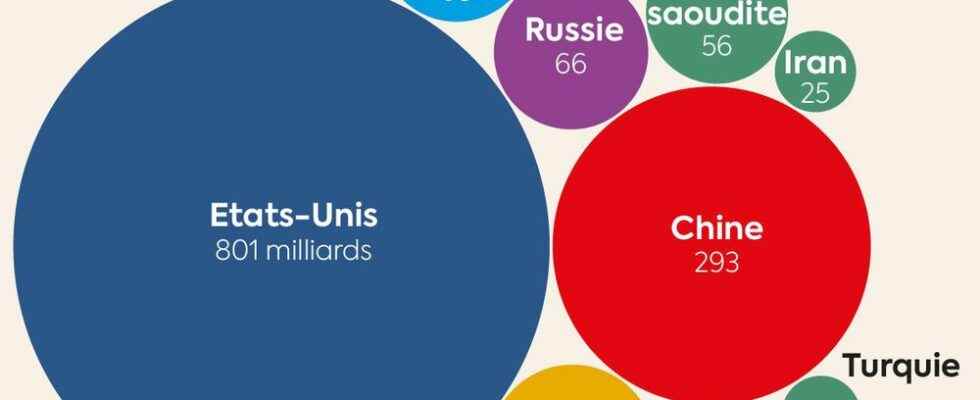Whereas since February 24 the crash of war has suddenly returned to Europe, and with it the threat of a general conflagration, the Court of Auditors draws up this Wednesday, May 11 a quantified assessment of French military capabilities. Among the forces present, it counts, in the air, 113 M 2000 combat planes, 98 Rafales and 256 combat and transport helicopters, on land, 222 Leclerc tanks and 220 Griffon armored vehicles and, at sea, 26 frigates, 4 nuclear ballistic missile submarines and 5 nuclear attack submarines. Without forgetting the national flagship, the aircraft carrier Charles de Gaulle. Finally, France can count on 205,752 soldiers, which ranks it, men and equipment combined, in seventh place in the world for military budgets.
After “years of scarcity”, the report observes a significant increase in the credits allocated to defense, within the framework of the military programming law 2021-2025, which plans to raise to 50 billion euros the budget devoted to defense in 2025, i.e. 2% of GDP. In 2022, it should reach 40.9 billion euros, an increase of 22% compared to 2017. Emmanuel Macron’s first five-year term is therefore marked by a strengthening of defense capacities, but this, warns the Court accounts, cannot be achieved without compromise.
Infographics
Dario Ingiusto / L’Express
A delicate trade-off between security and deficit reduction
If “confirming the ambitions of the military programming law is necessary because of the strategic context”, financial realities come to tarnish the picture, and it is at the cost of “difficult arbitrations with other public expenditure”, according to the words of the President of the Court of Auditors, Pierre Moscovici, that the defense policy will have to be carried out. Committed to an objective of reducing its deficit to 3% of GDP, it is currently at 6.5%, France must save money, especially as the Covid-19 crisis continues to draw on its public accounts.
Thus, the Court of Auditors advises the government to “disengage from certain missions”, referring in the first place to Operation Sentinel, active since January 2015, which cost, including staff costs, nearly 340 million euros in 2020 alone. The report also calls for the development of “operational cooperation” with other European countries, in this unprecedented period of the 21st century when everyone’s interest is shared by the others.
